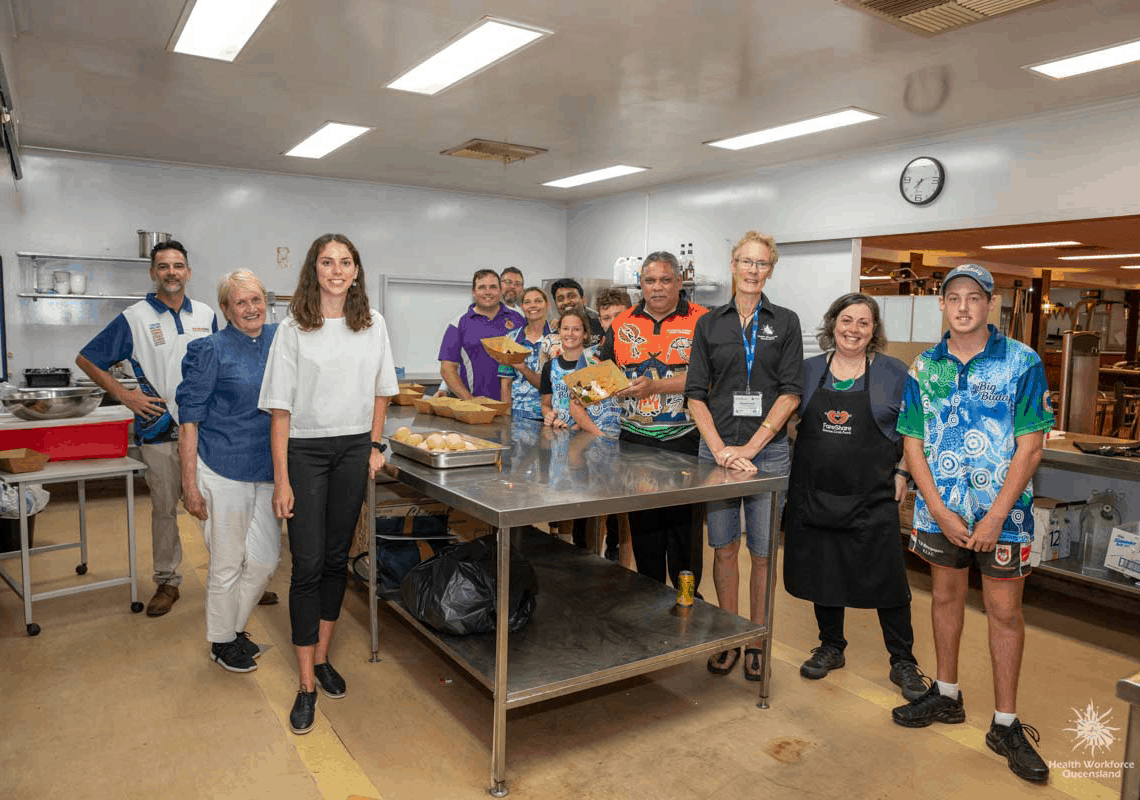NAIDOC Week: Partnering with remote communities for childhood health

We sat down with Renae, Dietitian and PhD student to talk about her research on childhood healthy weight, focused on Indigenous families.
- Could you explain your PhD work?
My PhD is in the area of childhood healthy weight, focusing on Indigenous families. My work aims to holistically support the social, emotional, spiritual and cultural wellbeing of Aboriginal and Torres Strait Islander children, so that they are empowered to create positive change in their lives, and health. We will be working in partnership with the remote communities of St George and Dalby to co-design an empowering weight management program. This work will be undertaken in partnership with Goondir Health Services and will complement the great work they are already doing. - How does your PhD work connect to Country?
My PhD work is based on the Aboriginal-developed Family Wellbeing Program. This program foregrounds connection to country as absolutely critical to social, emotional and physical health of First Nations people. To honour this, our childhood healthy weight program will include a cultural element, which will be led by local Indigenous leaders. Exactly what this looks like will be determined by our local champions, but some ideas include learning about traditional bush foods or meeting at culturally significant places. Passing on cultural knowledge is so important to supporting the prosperity of Indigenous communities, this program offers an opportunity for this to occur. - What findings have stood out in your work?
We plan to start the community consultation and program implementation in 2021. So, I don’t have anything super exciting to share just yet.
But, in preparing for this project, something that has really stood out for me is the lack of healthy lifestyle services available for Indigenous adolescents. A lot of the research in this space has been conducted in the context of mums and bubs programs. All of which is really important work. However, there seems to be a bit of gap when it comes to supporting Indigenous children who are older. And this age group is so important for a healthy transition into adulthood, and maintenance of healthy habits later in life. It’s for this reason, I’ll be working with Aboriginal and Torres Strait Islander adolescents in my research. - The theme of NAIDOC week—Always Was, Always Will Be—what does this mean to you/your work?
To me, personally, Always Was, Always Will Be recognises traditional ownership over lands and water. It speaks to the on-going connection between Aboriginal and Torres Strait Islander people and country. As a non-Indigenous person, and ally, it is important to respect this connection. This can be done through specific actions such acknowledging country at events, spending time learning about traditional land ownership and referring to land by its traditional name, where possible.
As for my work, I put Indigenous families at the centre of everything I do. My research will platform Indigenous voices, and strengths, to design a program with the community that is culturally relevant and meaningful. As a non-Indigenous research, this is how I respect Always Was, Always Will be.
Image source: Health Workforce Queensland


